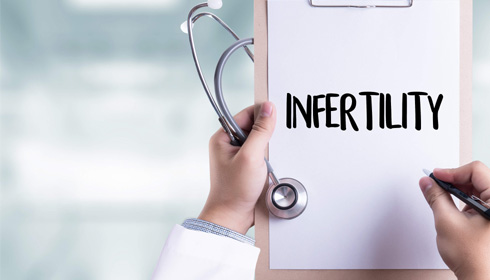
New drug shows a significant increase in live birth rates in infertile women
Researchers have made an exciting discovery: a new oral medication that is non-hormonal and has shown promising results in improving embryo implantation and live birth rates in infertile women undergoing intracytoplasmic sperm injection (IVF). The findings, unveiled at the 40th Annual Meeting of ESHRE in Amsterdam, indicate a potential shift in the global landscape of infertility treatments.
It is a staggering fact that a significant portion of the global population, approximately one in six individuals of reproductive age, experiences infertility. Furthermore, the world performs more than 3 million IVF procedures annually. Even with the advancements in technology, many couples still face the heartbreaking reality of unsuccessful embryo implantation.
The Phase 2 clinical trial of OXOART2, which took place in 28 locations across Europe, included OXO-001. The study selected 96 women up to 40 years old to participate in a double-blind, placebo-controlled, randomised trial. We administered either OXO-001 or a placebo to the participants for five weeks following the embryo transfer, starting one menstrual cycle prior to the procedure.
The results were truly remarkable. Women who received OXO-001 experienced higher rates of biochemical pregnancy (75.9% vs. 52.4% with placebo), clinical pregnancy (50.0% vs. 35.7%), continued pregnancy (46.3% vs. 35.7%), and, most notably, live births (42.6% vs. 35.7%). These improvements are considered to be of significant importance, providing patients and the medical community with renewed optimism.
Dr. Agnès Arbat, the CEO and CMO of OxoliFE, expressed optimism, emphasising the substantial significance of a more than 5-percent increase in ongoing pregnancy rates. OXO-001 exceeded the established threshold, suggesting its potential as an innovative treatment to improve the likelihood of successful embryo implantation.
The side effects of the medication, which vary in intensity and may cause headaches and stomach discomfort, are similar to those that people taking a placebo would experience. Importantly, the study found that children born during the study demonstrated normal development at the six-month check-in. This provides reassurance to medical experts and patients regarding the safety of the medication.
According to Dr. Ignasi Canals, CSO of OXOLIFE, the medication OXO-001 is groundbreaking in its approach to infertility treatment. It targets the endometrium without causing any hormonal effects, ushering in a new era in this field. These discoveries have opened the door to larger clinical studies.
ESHRE Chair Professor Dr. Karen Sermon emphasised the importance of these findings, noting that despite advancements, achieving higher live birth rates in assisted reproduction has been challenging. Our patients will be pleased to hear that there has been a nearly 7% increase in live births."
Human Reproduction, a highly regarded journal in the field of reproductive medicine, will publish the study abstract, showcasing the immense potential of OXO-001 to revolutionise infertility treatment methods on a global scale.